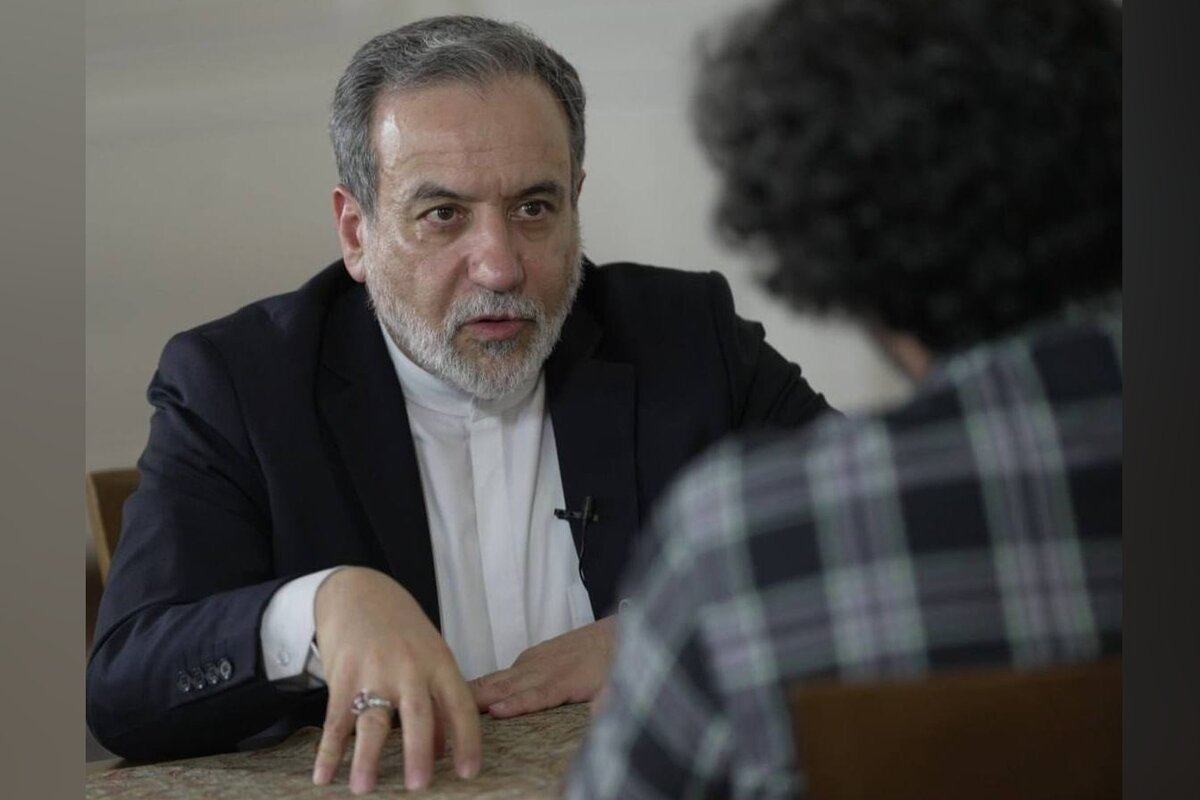Iran’s decision to pursue negotiations stemmed from strength: FM Araghchi

TEHRAN – In a detailed Sunday interview recounting the recent 12-day war between Iran and Israel, Iranian Foreign Minister Abbas Araghchi emphasized that Iran’s decision to enter a pause and pursue negotiations stemmed from strength, unity, and strategic calculation—not weakness or submission.
Reflecting on the events that began with a surprise Israeli offensive on June 13, Araghchi said that Iran’s armed forces and government had been prepared for all scenarios. “Negotiation is a strategic choice,” he stated, “taken when a nation has proven its resilience and deterrent power on the global stage.”
Araghchi revealed that the decision to accept a pause was made under the direction of Iran’s Supreme National Security Council. He clarified that the truce was not the product of external pressure, but rather a calculated national decision, triggered only after “the enemy”—referring to the Zionist regime—requested an unconditional end to hostilities.
“This was not a misjudgment by the Foreign Ministry,” Araghchi stressed. “It was a united directive from the country’s top leadership. The truce was approved only after the Zionist side initiated the request—an outcome that highlights the effectiveness of Iran’s resistance strategy.”
The 12-day war saw significant military escalation, including the June 22 U.S. airstrikes on Iran’s nuclear facilities at Natanz, Fordow, and Isfahan. In swift response, the Islamic Revolution Guards Corps (IRGC) launched Operation True Promise III, striking Israeli military and intelligence centers in the occupied territories with 22 rounds of missiles. Iran also targeted al-Udeid Air Base in Qatar—the largest U.S. base in West Asia—sending a clear signal that further aggression would come at a steep cost. The war came to a halt on June 24.
According to Araghchi, Iran’s decision to match military resistance with diplomatic engagement is what prevented the war from spiraling into a wider regional catastrophe. “We were on the brink of full-scale war at least three times in recent years—after the martyrdom of Haniyeh, during Promise II, and following the fall of Syria. But it was diplomacy, not just arms, that pulled us back.”
In his remarks, Araghchi also criticized the European trio—France, the UK, and Germany—for their “blatant hypocrisy.” On July 26, the three countries issued an ultimatum threatening to trigger the JCPOA’s snapback mechanism by August 31 unless Iran returned to talks with the International Atomic Energy Agency (IAEA).
“These same governments that ignored months of brutal Israeli bombardment in Gaza now issue ultimatums to Iran for defending itself,” Araghchi said. “While over 120 countries condemned the attacks on Iran, Europe chose to repeat U.S. talking points instead of upholding the JCPOA they claim to support.”
He further criticized the Europeans for remaining silent during the U.S. “maximum pressure” campaign and Trump’s direct threats. “They didn’t oppose sabotage against our nuclear facilities or the assassination of our scientists, yet they pretend to safeguard nonproliferation. That’s not diplomacy—it’s legal blackmail.”
On the nuclear issue, Araghchi reiterated Iran’s longstanding position: that Tehran has never sought nuclear weapons and that the JCPOA was built on temporary confidence-building measures, not permanent restrictions. He described the U.S. approach under Donald Trump—alternating between overt threats and vague proposals—as a trap that Iran wisely navigated.
“When Trump offered a war-or-talks ultimatum, Iran opted for indirect negotiations—not from weakness, but from strategic foresight,” he said.
Araghchi rejected proposals like a multinational fuel consortium as violations of Iran’s sovereignty. He reiterated that Iran’s right to peaceful nuclear technology is non-negotiable and warned that pushing Iran too far could force it to reconsider its participation in the Non-Proliferation Treaty (NPT).
The Foreign Minister praised the Iranian people for their unity during the crisis. “The strong cohesion among Iranians reflected their deep trust in the state’s efforts to avoid war while defending the nation’s dignity.”
According to Araghchi, Iran’s response—militarily and diplomatically—sent a powerful message: “We are not isolated. We are not intimidated. And we do not enter negotiations unless our flag is raised in victory.”
He concluded by warning regional actors hosting U.S. military bases to consider the risks of involvement in a future conflict. “If Iran is forced to defend itself, no hostile base will be spared,” he warned.
With the pause in effect and diplomatic activity continuing, Iran’s leadership sees the latest conflict not as an end, but as a turning point—one where Iran’s deterrent capability and diplomatic resilience reinforced its regional and global standing.
Leave a Comment